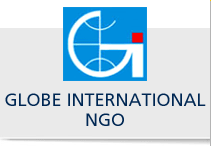Right to Know: Freedom of Information
Right
to Know: Freedom of Information, 2002-2003
Issued by
project team of the GI for
Right to Know: Freedom of Information project
Transparency
of state organizations and citizen's right to access
to information Situational analysis Report Summary
Goal:
Define an overall
picture on the current situation of citizens' right
access to information held by government bodies, dissemination
of information on activities and achievements of the
state organizations to the public, systems and regulation
of holding information, organizations' secrecy and its
list and transparency and openness of state institutions
in connection with drafting FOI legislation.
Framework
In accordance with
Parliament Resolution No 58, which adopted structure
of state bodies, there are in total 42 state agencies:
8 regulating agencies and 34 implementing agencies.
Questionnaires of the present analysis distributed to
55 public organizations and 47 received. It involved
62.2% of the state organizations that:
- Established by
the Parliament 3
- State administrative(Ministries) 9
- Judicial and other 11
- Regulating bodies 7
- Implementing bodies 17
The analysis were
also conducted among citizens in order to analyze the
current situation of the citizen's right to know and
involved 100 people representing different social groups
over 18 years old with different education and profession
Results and findings
Transparency
and openness of the state bodies
36 out of 47 state
organizations established it bodies: media or public
relation departments, divisions and sections with an
aim to disseminate information on their activities to
the public. 29 bodies see their duties to distribute
information on their activities to the public and 23-
to provide the public with information.
26 organizations
said that they distribute information public interest
on policy, content of decisions and its reasons of the
organizations and 22 organizations responded that they
regularly inform the public in their activities and
its results. One of ways of information dissemination-
according to state organizations is media. According
to the State Auditing Commission, only in 2001 more
than 80 state organizations published their advertising
in 2 daily newspapers ( there are 6 dailies) and spent
more than 20 mln. MNT. App. 3.9 mln. MNT per a month
earns "Unen" - ruling party's daily newspaper
from adds of state organizations.
75% of respondents
replied to question: Did you receive information you
requested from state organizations and they responded:
- Yes 12%
- Sometimes 6.7%
- No 81.3%
Reasons why they
did not:
Management did not
permitted 15.1%
State secret 7.6%
Organization's secret 7.6%
Information is not available 18.2%
Official papers are not for ordinary citizens 16.6%
It was refused without explanation 19.7%
Refused when they heard about the purpose 10.6%
Official was busy 1.5%
Answer was not satisfactory 1.5%
Requested payment 1.5%
State organizations
also request information from another state body by
- official letter 42
- information exchange 27
- Explaining purpose of obtaining information 19
Citizen's
right to obtain information
Information restriction
Organizations adopted
list of secret materials 32
Organizations without adopted list of secrecy 12
Organizations approved
procedure or rule on information protection 33
Organizations without any procedures or rules 12
Is your list
a part of your organization's secret
Yes 23
No 14
Is your procedure
a part of your organizations' secret?
Yes 26
No 12
Reasons why the
state bodies refuse in information:
25% state organizations and officials do not like
21.4% no legal guarantee
17.3% the public does not know about their rights
0.60% the right is not necessary, so it is not justified
5.95% the citizen can not be informed even the right
is guaranteed
29.2% no training, information and civic education on
the public's right to know
0.59% officials simply do not want to provide information
What could be
done in the future?
Organizations out
of 47:
- Create legal environment 17
- Information of state organizations is open, so the
citizen must be trained and informed 21
- Make the state institutions more transparent than
now 17
- No need for legislation, but organizational measures
are necessary 10
Citizen out of
100
- Conduct training for state officials 51
- Employ workers, who are committed to provide information
29
- Create legal environment 50
- Organize workshops for the public 56
- Prime Minister should issue a Resolution 12
- Make information more free starting from Ministries
31
- Information dissemination must be without censorship
1
- Release MNR&TV from the Government 1
- Distribute information on the public's right through
radio and TV 1
- Make information free from local governments 1
Conclusion
1. The most of state organizations concentrate
on public relations in order to inform the people in
their activities
2. Information hold by state organizations is restricted
for obtaining by the existing laws, especially Law on
Organization's secrecy prohibits free information flow
3. The most of state organizations run its separate
information bodies so it would to contribute to further
positive developments of access to information
4. In general, the citizen know about their right to
access information, but mentality and habit have not
been changed and they are not informed
5. There are many one-sided information sources, so
public information is not objective
Recommendations:
1. Law on Organizations'
Secrecy must be abolished
2. Information bodies at the state organizations must
be re-structured and re-organized in convenience of
transparency and openness
3. Organize intensive workshops for state officials
and information officers on the importance, concept
and principles of FOI and its role in strengthening
democracy and take measure to change their mentality
and attitudes
4. Organize works at information bodies of the state
organizations in creation of possibilities of dissemination
of public requested information
5. Lobby the Parliament and the Government in passage
of legislation on FOI
6. Conduct public campaigns on their right to know
7. Change the attitude of state organizations in cooperating
and supporting ruling party's press
|




